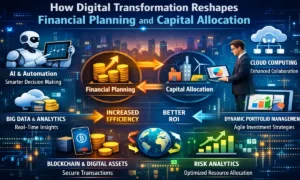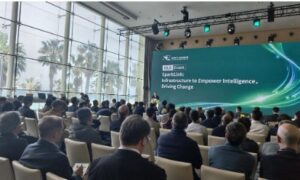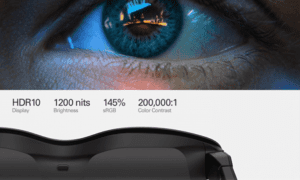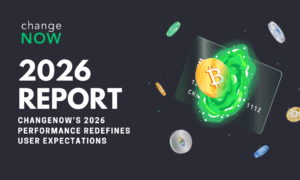TechBullion recently had the privilege of sitting down with Prince Uchenna Chukwu, a seasoned digital technology expert with extensive experience delivering transformative solutions across both public and private sectors. In this exclusive interview, Prince shares insights from his multifaceted career in Product Management, Data Science, Project Management, Software Development, and Business. With a proven track record of delivering high-impact, data-driven solutions across industries such as E-Government, Real Estate, Business Intelligence, EdTech, and eCommerce, Prince discusses how his blend of business acumen and technical expertise drives innovation and measurable results.
Prince, you are of the opinion that the next decade of digital transformation won’t be just about technology, but about clarity. What inspired this perspective?
It came from years of watching the same story play out across industries. Organisations roll out new systems, dashboards go live, and everyone celebrates “digital milestones.” Yet when you step back, citizens, customers, and employees still face the same frustrations. The tools are modern, but the problems remain.
I realised we’ve confused building software or rolling out shiny features with solving actual problems. Real transformation starts with empathy, not engineering. It’s time we stop thinking in terms of apps and platforms and start thinking in terms of outcomes and people.
That’s quite a mindset shift. How did your own experience shape that realization?
When I began as a software developer, success was measured in code delivered and features shipped. My instinct was always: What are we building and how fast can I deliver?
But as I transitioned into product management, especially working on large-scale government solutions and enterprise platforms, it became clear that successful products don’t start with code. They start with clarity.
Users don’t care what tech stack you use; they just want the headache gone. That’s the job. The best teams I’ve seen obsess not over backlogs, but over outcomes. They ask:
What’s the real problem we’re solving?
Who feels the pain most?
What does success look like in human terms?
That’s how you move from building software to actually creating solutions.
You’ve worked in both the public and private sectors. Are the challenges similar?
Surprisingly, yes though they play out differently. In the public sector, transformation is often constrained by rigid procurement, political timelines, and a focus on outputs rather than outcomes. You get sleek systems that don’t necessarily translate into citizen impact.
In the private sector, the trap is different. Companies chase shiny features to impress investors or to “check” innovation boxes, not because users asked for them. So the underlying issue is the same: misplaced focus. Transformation still happens to people, not with them.
And now, AI seems to be adding a new layer to that. What’s your take on how it’s being used today?
It’s déjà vu. Just like with blockchain a few years ago, AI is being added to everything whether it makes sense or not.AI can be transformative, but only when it’s anchored on real user problems. If your product didn’t solve a problem before AI, it won’t suddenly start solving it after. The point isn’t to have AI-powered products, it’s to have problem-powered products.
You talk about moving from “delivery obsession” to “discovery curiosity.” What does that mean in practice?
Delivery is about efficiency, shipping fast, hitting deadlines. Discovery is about empathy; understanding what truly matters before you build.
Both are important, but too many teams treat discovery like a checkbox instead of a discipline. The organisations that will thrive are those that build Discovery Cultures: teams that lead with curiosity, question assumptions, and measure success by user outcomes, not just velocity charts.
What kind of team structure supports that mindset?
Cross-functional teams that bring together data insight, design intuition, and business acumen. When product managers, engineers, designers, and analysts work as equals guided by shared outcomes rather than departmental KPIs magic happens.
Data becomes your compass, not your cage. You stop hoarding metrics and start translating them into meaningful decisions.
You have a data science background. How has that shaped your approach to product leadership?
Data brings clarity but not truth on its own. I use data to validate hypotheses, surface hidden pain points, and measure if solutions actually deliver value. But I’ve learned that numbers need stories. The most impactful teams don’t just report metrics; they use them to provoke better questions. When you combine data literacy with human insight, you move from dashboard-watching to decision-making.
You’ve said that “technology is no longer the differentiator that clarity is.” Can you expand on that?
Absolutely. Anyone can build software now. AI makes that very fast these days. The real edge lies in understanding the why. It is in having: clarity of the problem, purpose, and outcome. When organisations obsess less over features and more over friction points, they create real value. We should stop celebrating launches and start measuring problem resolution.
That’s how digital transformation matures from building tools that look good, to creating solutions that actually work.
Final thought, what advice would you give to product leaders stepping into this next decade?
Be obsessed. Be obsessed about your customers and their problems. See yourself not as a software builder, but as a problem solver. Every meeting should start with one question: What problem are we solving?
If you can answer that clearly, everything else including technology, design, delivery will fall into place. The next decade of product leadership belongs to those who lead with clarity, curiosity, and courage.
https://www.linkedin.com/in/chukwu-uchenna-prince

































